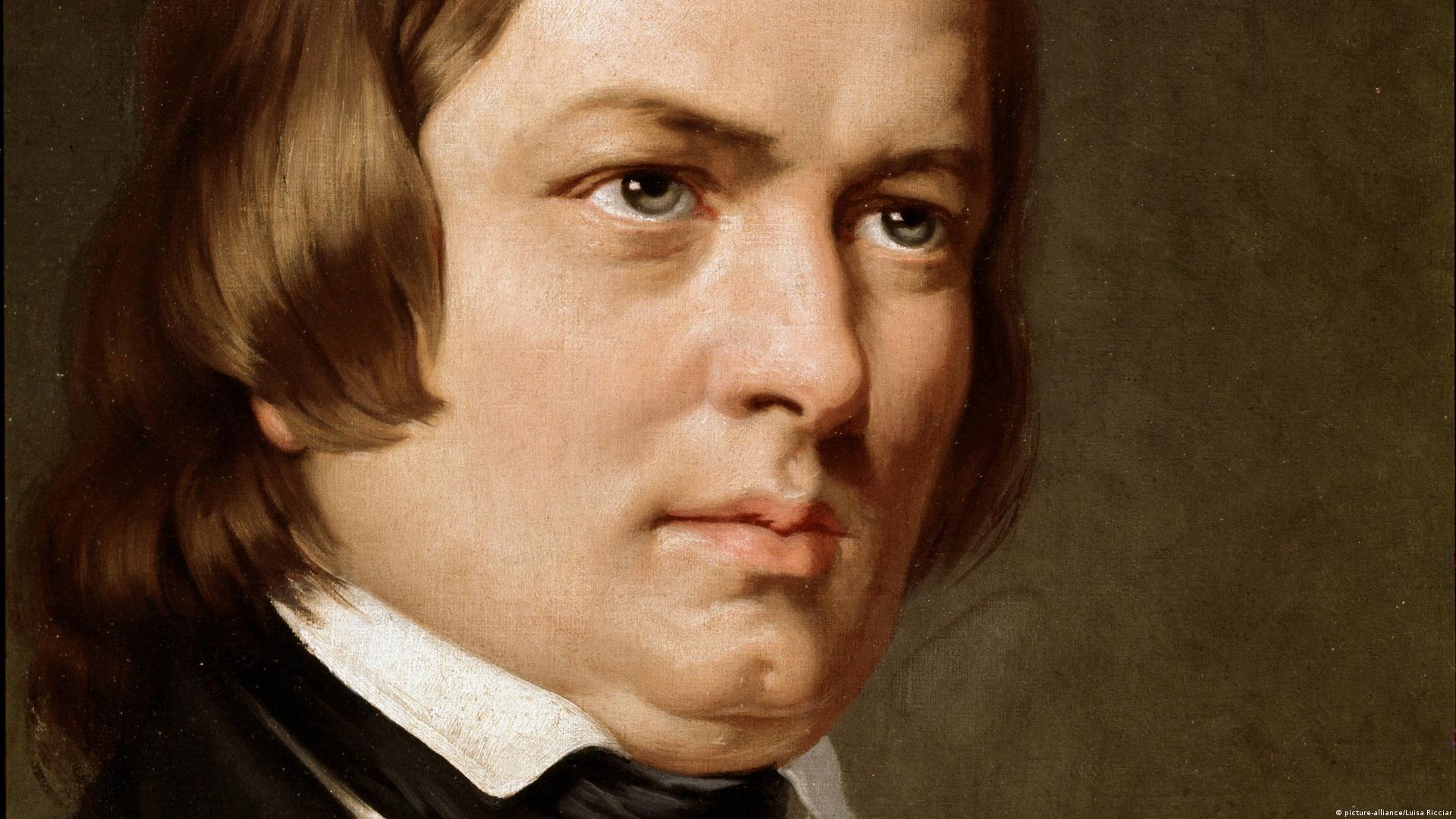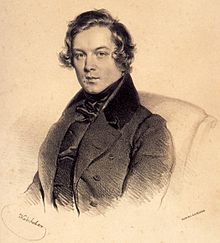Early Life and Education
Robert Schumann was born on June 8, 1810, in Zwickau, Saxony, which was then part of the Kingdom of Saxony. He was the youngest of five children in a family that valued literature and music, as his father, August Schumann, was a bookseller and publisher. His mother, Johanna Christiane, was less enthusiastic about his musical ambitions, preferring he pursue a stable career. Schumann’s early life was steeped in the arts, with a particular affinity for literature, which would later influence his songwriting.
Schumann began piano lessons at a young age, displaying considerable talent. At the age of seven, he composed his first piece of music. His father recognized his potential and arranged for him to study under Friedrich Wieck, a prominent piano teacher. Despite this encouragement, Schumann’s formal education was initially directed towards law, a profession his mother preferred for him.
Struggles and Determination
In 1828, Schumann began studying law at the University of Leipzig, but his passion for music continued to dominate his interests. He eventually abandoned his law studies to fully immerse himself in music. However, his dreams of becoming a concert pianist were dashed when he suffered a hand injury, reportedly from a device he created to strengthen his fingers, leading to permanent damage.
Undeterred, Schumann shifted his focus to composition. He began intensive studies in music theory and composition under Heinrich Dorn, the conductor of the Leipzig Opera. This period marked the beginning of his deep dive into the creation of piano music, which would become a hallmark of his early career.
Musical Career and Contributions
Schumann’s early compositions were mostly for solo piano, showcasing his inventive style and emotional depth. Notable works from this period include “Papillons” (1831), “Carnaval” (1835), and “Études symphoniques” (1834-1837). His music often carried autobiographical elements, blending literature with intricate musical narratives.
In 1834, Schumann founded the influential music journal Neue Zeitschrift für Musik (New Journal for Music), which he used as a platform to advocate for the music of young composers and to critique contemporary music. Through this journal, Schumann championed the works of composers like Chopin and Brahms, and it played a significant role in shaping the musical tastes of the period.
Marriage and Later Works
In 1835, Schumann met Clara Wieck, the daughter of his former piano teacher, Friedrich Wieck. Clara was an exceptionally talented pianist and composer in her own right. Despite Friedrich Wieck’s vehement opposition, Robert and Clara married in 1840 after a protracted legal battle.
The year of their marriage is often referred to as Schumann’s “Liederjahr” or “Year of Song,” during which he composed an extraordinary number of songs, including the famous song cycles “Liederkreis” (Op. 39) and “Dichterliebe” (Op. 48). Clara’s influence and their deep emotional connection profoundly inspired Schumann’s work during this period.
Schumann’s later works expanded beyond piano and song compositions to include symphonies and chamber music. His Symphony No. 1, known as the “Spring Symphony,” premiered in 1841 and was followed by other significant works such as Symphony No. 2 (1845-46), Symphony No. 3, the “Rhenish” (1850), and Symphony No. 4 (1841, revised in 1851).
Mental Health Struggles and Final Years
Throughout his life, Schumann struggled with bouts of severe depression and other mental health issues. His condition worsened in the 1850s, leading to a decline in his creative output. In 1854, Schumann attempted suicide by throwing himself into the Rhine River but was rescued. Following this incident, he voluntarily entered an asylum in Endenich, near Bonn, where he spent the remaining two years of his life.
Robert Schumann died on July 29, 1856, at the age of 46. Despite his relatively short life, his contributions to music were profound and enduring. His works remain a staple of the classical repertoire, celebrated for their lyricism, emotional depth, and innovative use of musical form.
Legacy
Robert Schumann’s legacy lives on through his vast and varied body of work, which continues to be performed and cherished worldwide. He is remembered as a pioneering Romantic composer who deeply influenced the course of Western music. His integration of literary elements into his compositions and his advocacy for young composers through his journal significantly impacted the development of music in the 19th century and beyond. Schumann’s life, marked by both triumph and tragedy, reflects the quintessential spirit of the Romantic era, characterized by intense emotion, personal expression, and a profound connection to the arts.


Comments are closed